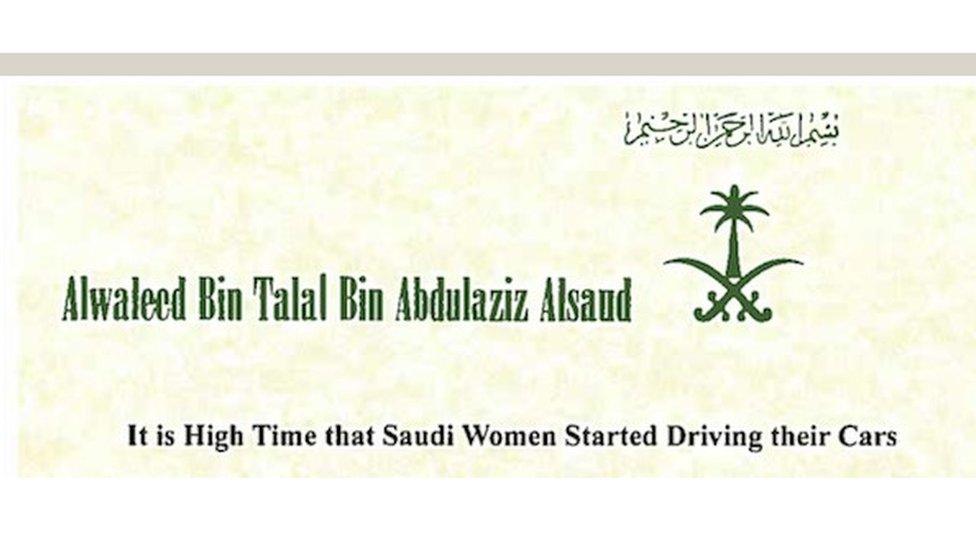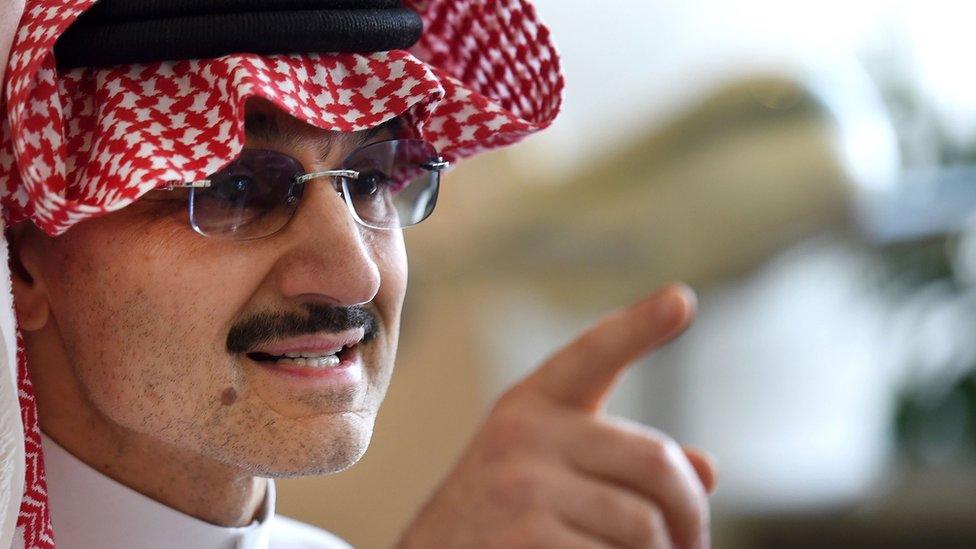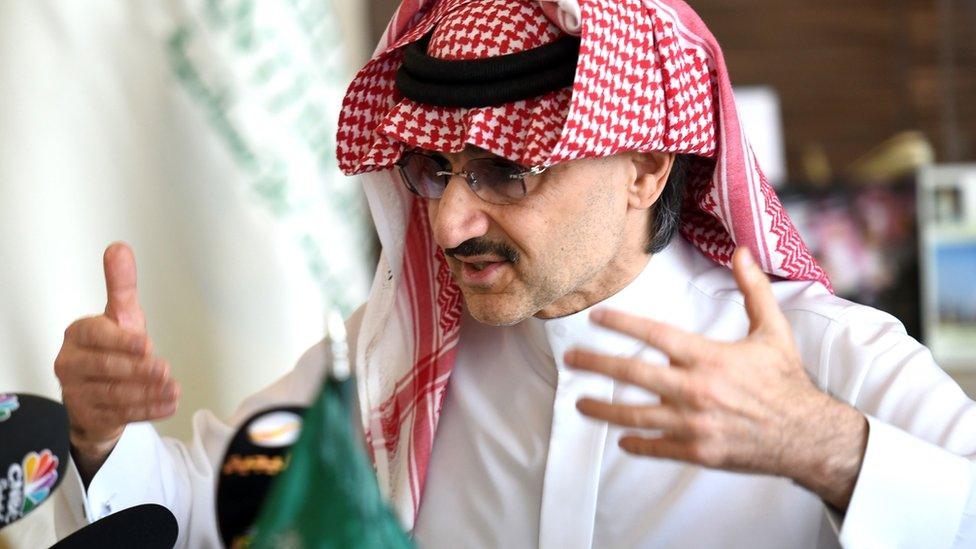Prince Alwaleed says women driving ban hurts Saudi economy
- Published

An influential Saudi prince, the billionaire investor Alwaleed bin Talal, has called on his country to lift its ban on women driving cars.
He said it was a matter of economic necessity as well as women's rights to lift restrictions.
Saudi Arabia is the only country in the world where women are not allowed to drive, and women's rights activists have been arrested for defying the ban.
"It is high time that Saudi women started driving their cars",, external he said.
Prince Alwaleed is an outspoken member of the Saudi royal family who has criticised the restriction of women's rights in the country before.
Although he has no political position in the country, he is the chairman of the Kingdom Holding Company (KHC), which owns stakes in the huge US bank Citigroup and the Euro Disney theme park and which is listed on the Saudi stock exchange.
KHC claims to be one of the largest foreign investors in the US, with interests in hotels, property and news media. The company has stakes in Disney, 21st Century Fox, News Corp, Apple, General Motors, and Twitter.
'Unjust acts'
The prince, among the world's wealthiest individuals, said: "Preventing a woman from driving a car is today an issue of rights similar to the one that forbade her from receiving an education or having an independent identity.
"They are all unjust acts by a traditional society, far more restrictive than what is lawfully allowed by the precepts of religion."
While it is not technically illegal for women to drive, only men are awarded driving licences. Protests against the ban go back 20 years.
The prince's statement, published at length on his website, argues that the ban is extremely expensive for Saudi Arabia.
With poor public transport, more than a million drivers are employed to get women about, many of whom are foreigners employed at considerable expense.

The prince estimates that the average family spends each month 3,800 riyals ($1,000 or £800) on a driver, which drains family incomes.
"There are more than one million Saudi women in need of a safe means of transportation to take them to work every morning," argues the prince.
"It often falls upon the men to leave their work obligations to take their wives and children to clinics and other destinations, something that women could do on their own.
"Retaining foreign drivers not only has the effect of reducing a family's disposable income... but also contributes to the siphoning of billions of riyals every year from the Saudi economy to foreign destinations in the form of remittances," he adds.
- Published2 July 2015

- Published2 July 2015
